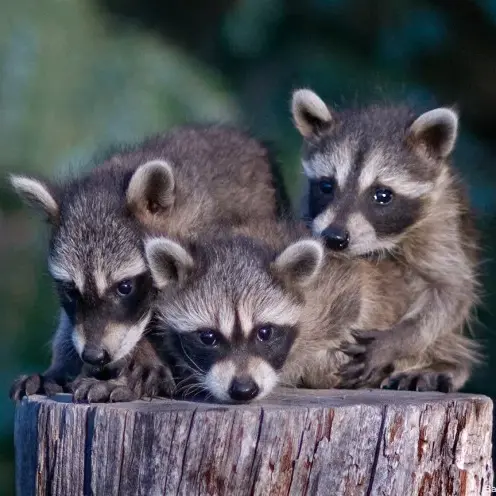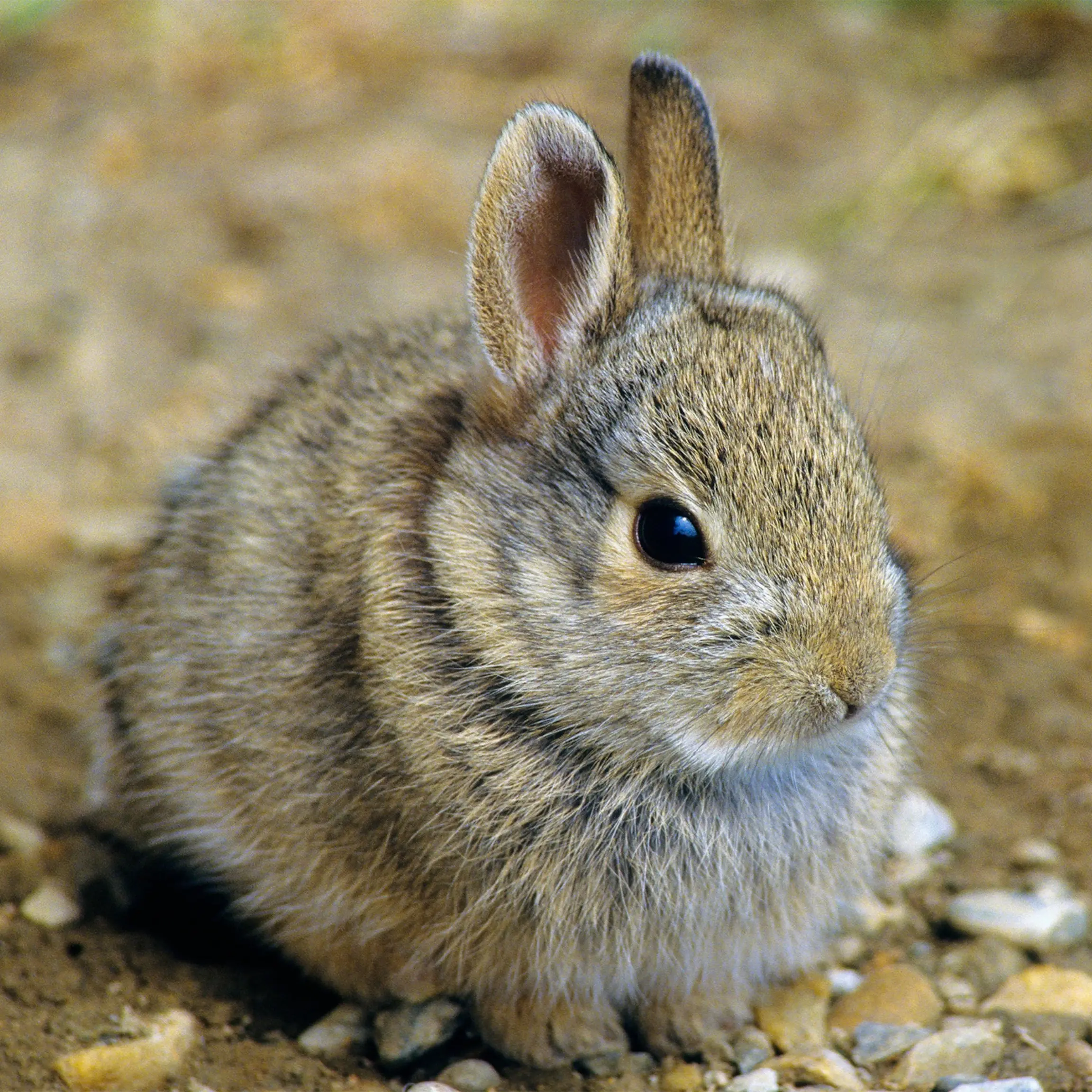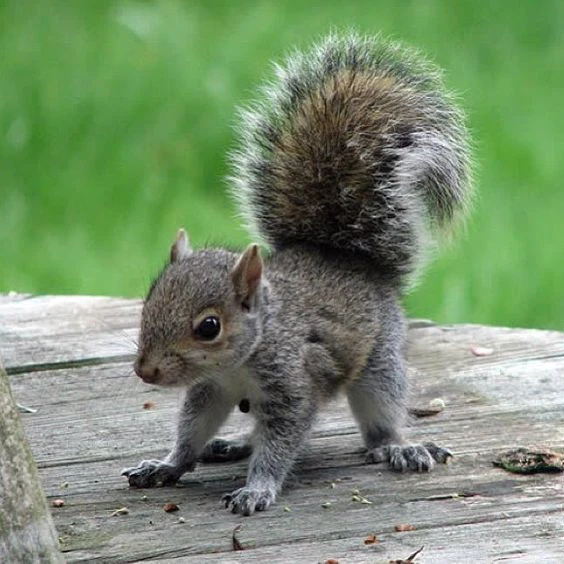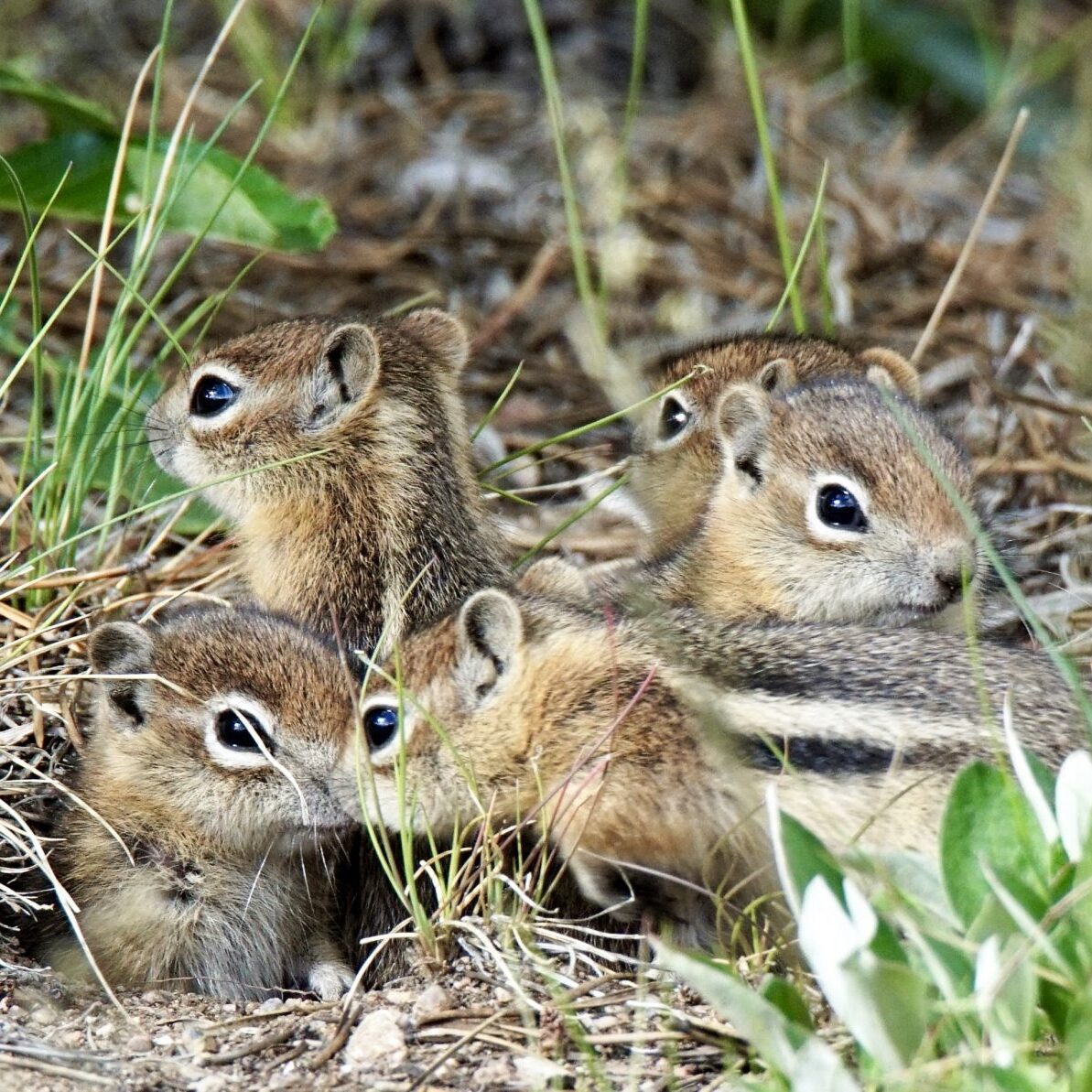If You’ve Found a Baby Mammal You Believe is in Need of Assistance, Please Follow The Instructions Below

Raccoons
If you find a young raccoon that is displaced from its nest
- place it in a box with a towel.
- Leave the box near where the young was found and leave the area for 2-3 hours. This will give the mother a chance to reclaim her young.
- If the mother has not returned after 2-3 hours, call NWC at (715) 356-7400 for further advice.
Never offer any food or milk/formula to a young raccoon. Feeding an improper diet can cause severe digestive upset that can have a strong negative impact on the health of young raccoons.
If you find a young, fully-furred raccoon exploring your neighborhood
- monitor for 2-3 hours from afar. The mother is likely in the area and will return when the young calls. It is natural for young to wander at this age. If no mother has come and the young is still in the in the same area after 2-3 hours, call NWC at (715) 356-7400 for advice.
Raccoons will commonly make nests in unwanted places. If this has occurred, please visit the nuisance wildlife page for repellant techniques.
If you find a nest with dead/injured young, young near a deceased mother, or the nest has been destroyed
- Please contact NWC at (715) 356-7400.
If you find an injured or ill adult raccoon
- Please contact NWC at (715) 356-7400 for further assistance.
Adult raccoons can be dangerous, even when they are not well. Please use proper safety equipment and get advice before handling.

Eastern Cottontails
Basic Information:
Eastern Cottontail nests are shallow depressions in the ground covered with grasses and fur from the mother. A mother cottontail does not spend much time with her young, often only spending approximately 15-20 minutes in the nest near sunrise and sunset. The rest of the time, the young are left alone.
If you find a Cottontail nest which you believe to be abandoned
- take a couple of small sticks and make an X pattern over the top of the nest.
- When the mother returns to care for her young, she will move the sticks to get in. This way you will know if she has been visiting the nest.
- If the sticks haven’t been moved 24 hours, contact NWC at (715) 356-7400 for further advice before removing any young from the nest.
Never offer food or water to a young cottontail. They have very sensitive digestive systems, which need a very specialized diet. Cottontails are also prone to breathing formula into the lungs if not fed properly. If fed an improper diet or fed in the wrong way, it can have a strong negative impact on the young cottontail’s health.
If a cottontail is roughly the size of your fist, has erect ears and open eyes, is fully furred, and shows a natural flight response
- They are ready to be on their own, please leave them be.
- If you are still concerned, call NWC at (715)356-7400 to for further advice.
Eastern Cottontails leave the nest at a younger age then most mammals, generally at 22-28 days of age.
If you have a Cottontail nest that has been destroyed, has come in contact with your pets, or you find a nest with injured/dead young
- Please call NWC immediately at (715) 356-7400 prior to removing any young from the nest.
If you have found an injured adult Eastern Cottontail
- Please contact NWC at (715) 356-7400 right away.
Cottontails are easily stressed, especially when injured or ill!
If you have found an infant or adult mammal other than the species listed above
- Please contact NWC at (715) 356-7400 for more information.
- Please remember to your safety is a priority.

Squirrels
Basic Information:
Tree squirrels found in N. Wisconsin include the Red Squirrel, Eastern Gray Squirrel, Northern Flying Squirrel, and the Southern Flying Squirrel. Ground squirrels most often found here include the Eastern Chipmunk and the Thirteen-Lined Ground Squirrel.
Never offer any food or milk/formula to a young squirrel. Squirrels require an extremely specialized diet for their species. If fed an improper diet, it can have a strong negative impact on the health of the squirrel.
If you have found a young squirrel been displaced from its nest
- place the squirrel in a box with a towel under the tree where it was found
- Leave alone for 2-3 hours before checking. This gives the mother a chance to claim her young
- If the mother has not returned, call NWC at (715) 356-7400 for further advice
When young squirrels leave the nest, they do not always immediately show a natural fear to humans.
If you are approached by a young squirrel
- walk away and monitor it from afar for 2-3 hours.
- If the mother has not returned, please contact NWC at (715) 356-7400 for further advice
Raccoons will commonly make nests in unwanted places. If this has occurred, please visit the nuisance wildlife page for repellant techniques.
If a nest has been destroyed, you find a nest with dead/injured young, or you find a young squirrel vocalizing with no response from a parent
- Please contact NWC at (715) 356-7400 for further advice
If you find an adult squirrel in need of assistance
- Please contact NWC at (715) 356-7400.
Use caution and proper safely equipment when handling adult squirrels.
If you have found an infant or adult mammal other than the species listed above
- Please contact NWC at (715) 356-7400 for more information.
- Please remember to your safety is a priority.

Other Mammals
If you have found an infant or adult mammal other than the species listed above
- Please contact NWC at (715) 356-7400 for more information.
- Please remember to your safety is a priority.